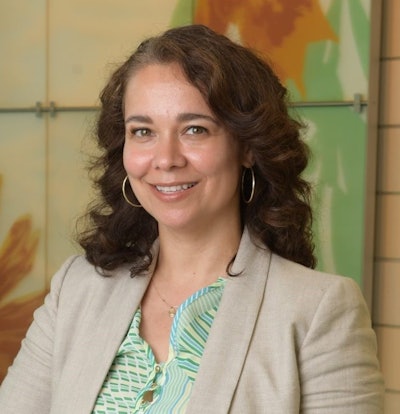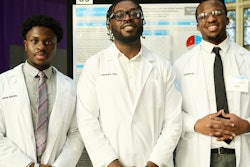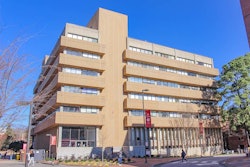In a pandemic-wracked year, U.S. medical schools enrolled their most diverse class on record, according to data released recently by the Association of American Medical Colleges (AAMC), the non-profit that administers the MCAT.
Applications for the 2021-22 school year surged, driven by strong increases of racial and ethnic minority applicants. For the first time since the AAMC began keeping track, the majority of applicants did not identify as white. And, after years of small increases, matriculation by Black or African American students jumped 21% compared to last year. Black or African American students made up 11.3% of first-year students in 2021, a yearly increase of nearly 2%.
The 2021 statistics came as a surprise in light of the economic difficulties caused by the COVID-19 pandemic.
“Many individuals lost their employment, many women had to drop out of the workforce to address care-giving responsibilities. So, I don’t think we expected such a significant increase,” said Norma Poll-Hunter, senior director of workforce diversity at the AAMC.  Norma Poll-Hunter
Norma Poll-Hunter
Although the pandemic created roadblocks, it may have also inspired some students to want to become doctors.
“Every day we heard about the importance of healthcare providers,” said Poll-Hunter. “We saw them in roles as leaders, as scientists, as frontline providers. The increased exposure to these role models could have been a catalyst to increase interest in pursuing medicine.”
The pandemic may also have influenced minorities in particular towards medicine.
“How the pandemic really exposed the disparities that existed in healthcare prior to [it] is important for us to recognize,” said Poll-Hunter.
Some of the accommodations that were made in response to the pandemic may have compensated for the difficulties. Many medical schools extended application deadlines, and some made the MCAT optional. The MCAT was also shortened.
There were also financial factors. The AAMC changed the eligibility rules for its fee assistance program so that students who were negatively impacted by the pandemic could be included. And the switch to virtual interviews from in-person ones saved students money.
“I feel like I was able to apply to more schools because it was all online,” said Lois Owolabi, a first-year student at Harvard Medical School and co-president of the Harvard chapter of the Student National Medical Association, an organization that supports Black medical students. “Those hundreds or thousands of dollars that [I] would otherwise have to spend to fly to a place and get lodging, I was able to save and just put it into applying to other schools.”
Owolabi believes that the virtual interview format can also benefit minority applicants.
“You have so much more control over your presentation,” said Owolabi. “[You have] the option to work with lighting, work with your background, only have to deal with the top half of what you’re wearing. I think that reduces the space for bias.”
Although Owolabi points out that some applicants don’t have spaces in their homes in which to conduct virtual interviews or reliable high-speed internet service, she thinks that interviewing from home can still sometimes be more comfortable than interviewing in person.
In an in-person interview, “you’re flustered, in an environment that is new to you,” said Owolabi. “Coming to Boston, Massachusetts and only seeing people that are white can be really jarring and make you more nervous. [Virtual interviews are] much more of an equalizer compared to flying in that morning and maybe being more disheveled and not having a place to put all your stuff because you can’t afford to stay overnight.”
The increase in diversity may help to ease the medical school experience for students from racial and ethnic minorities, who often encounter feelings of isolation, microaggressions, and more naked forms of bigotry. There are also pressures and a sense of obligation that can come with being one of the only students from a minority at a school.
When Alec Calac, a fourth-year student at the University of California San Diego School of Medicine and the National President-Elect of the Association of Native American Medical Students arrived on campus, he was the only Native student in his class.
“The burden falls on you to serve on committees, panels, conferences, [and] to speak up when something is said that may not be right, because otherwise, it’s not challenged," he said. "You feel like there’s an extra kind of weight on your shoulders.”
And medical school diversity isn’t just about improving the experience for minority students—it’s about better health outcomes for minorities. Minority physicians tend to practice in areas where they can serve more minority patients, which may be key to closing racial and ethnic health gaps. Additionally, research has shown that African American patients requested more preventative care when consulting with African American doctors. And Black newborns have been found to have better mortality rates when cared for by Black doctors.
In addition to the changes caused by the pandemic, medical schools have strengthened initiatives to attract and accept more diverse applicants in 2021. These included pathway programs for young people, post-baccalaureate programs for students to improve their credentials, holistic admissions processes, and training on unconscious biases to understand the role that they play in the admissions process. It’s not yet clear how these changes factored into the diversity of the 2021 class, but Poll-Hunter hopes that they can be combined with the lessons of the pandemic.
“What’s critical is that we learn from this past year,” said Poll-Hunter. “We’re hoping that it represents a deeper change that we’ll build.”


















